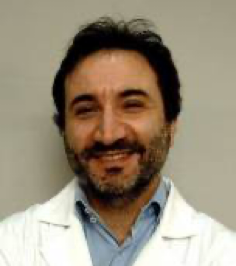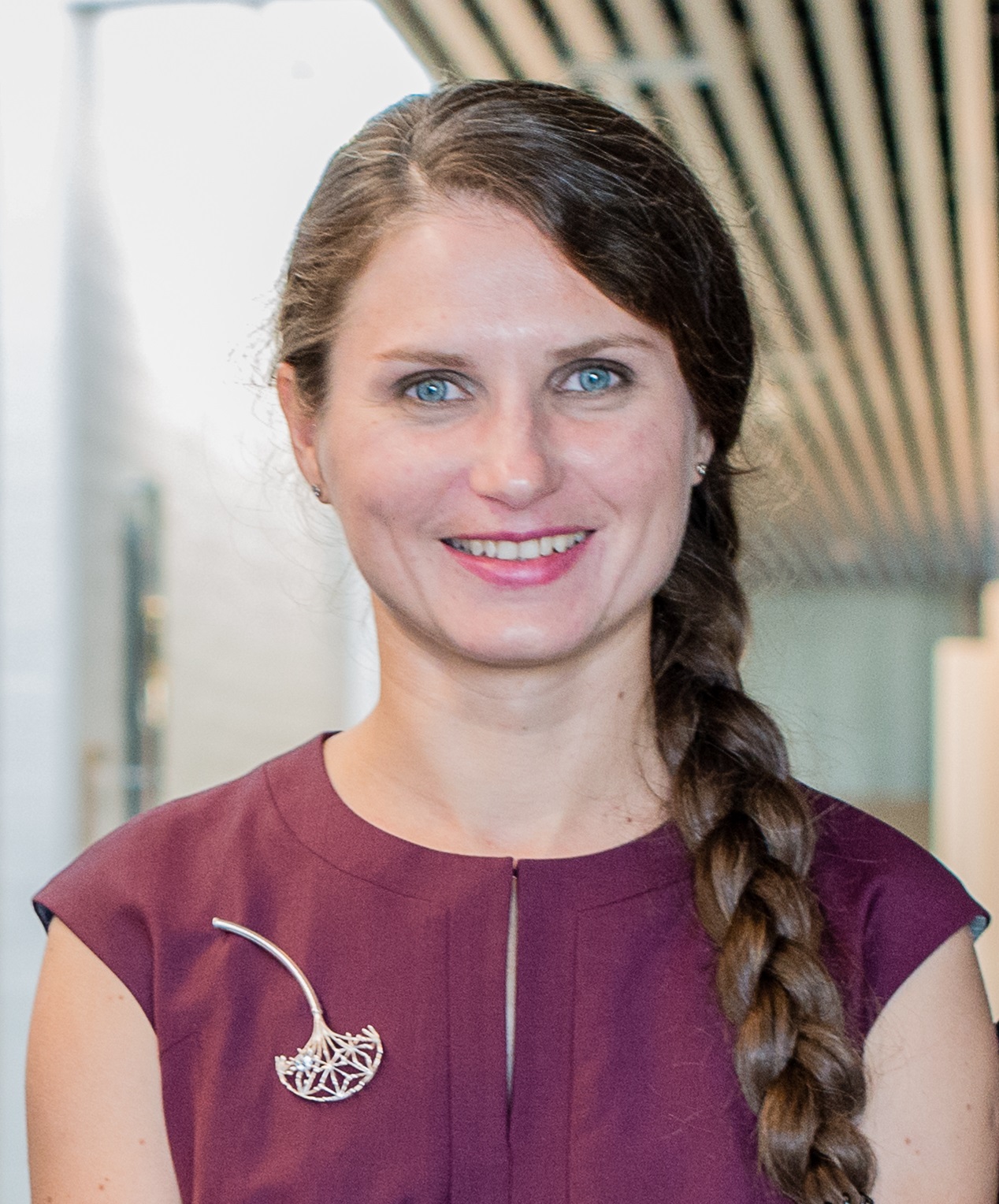Lunch Seminar
The purpose of the UEF data-driven lunch seminar series is showcase state-of-the-art empirical research in the university. They also foster interdisciplinary networks around such empirical research and strengthen the visibility of the UEF research activities nationally and internationally.
The seminars typically take place on the last Friday of each month (12noon–1pm). They involve one invited and high-profile guest speaker per session, and the purpose is to invite guest speakers whose topics cross disciplinary boundaries and who offer food for thought for both specialists and generalists in data-driven research. The objective is that the lectures are informative and yet informal with a focus on outreach across the four faculties. Each session includes time reserved for questions and discussion.
The lectures take place in an online environment. The lectures are free and open for the UEF community. Each session has a named chairperson, who introduces the speaker and moderates the discussion.
Links to the talks are distributed in UEF communication channels (Heimo event calendar and Viva Engage). Members of UEF can also join Data-Driven lunch email group in Outlook to receive notifications for upcoming events. If you do not have access to the event link but would like to attend, please contact the session’s chairperson.
Spring 2024
26 April: Drug-induced transcriptomics for drug discovery using both AI and classical approaches
Assistant Prof. Francesco Napolitano, University of Sannio, Benevento, Italy
In recent decades, computational methodologies have emerged as pivotal instruments within the domain of drug discovery, especially though the so-called ligand-based and rational approaches. Nonetheless, there have been remarkable efforts towards the creation of comprehensive databases collecting drug-induced transcriptomic alterations. These repositories have laid the groundwork for the emergence of innovative, unbiased methodologies, which facilitate novel explorative tools in domains where traditional modalities have been already extensively attempted. Furthermore, the advent and widespread adoption of single-cell sequencing technologies have led to the generation of datasets of unprecedented scale. These extensive datasets serve as a fertile ground for the application of data-intensive artificial intelligence models, thereby heralding the incorporation of advanced machine learning techniques into the realm of drug discovery. This presentation aims to elucidate such developments, highlighting their conceptual underpinnings and showcasing significant applications that exemplify their potential.
Speaker of the Day

Francesco Napolitano
Assistant Professor
University of Sannio, Benevento, Italy
F.N. is currently an Assistant Professor of Bioinformatics at the University of Sannio, Benevento, IT, after major experiences at the Telethon Institute of Genetics and Medicine (TIGEM), Naples, IT, and the King Abdullah University of Science and Technology (KAUST), SA. His main research interests concern -omics data analysis for drug discovery, including small molecules for laboratory applications, drug repurposing, and elucidation of drug mode of action. In particular, he has published relevant literature in the area of machine learning techniques applied to the identification of small molecules inducing cell reprogramming, differentiation or rejuvenation from exhaustion, using integrated multi-omics data and deep learning models for domain adaptation. His additional interests include the application of omics data analysis to the study of genetic diseases, cancer, and metabolism through flux balance analysis. F.N. developed and published software tools in the areas of bioinformatics, data management and reproducible research, including R/Bioconductor packages. His main research projects have been funded by Fondazione Veronesi, KAUST, and the Italian Ministry for Universities and Research.
22 March: Data-driven approaches to multimodal communication
Prof. Tuomo Hiippala, University of Helsinki, Finland
Human communication naturally combines multiple ‘modes’ of expression, as exemplified by coordinated use of spoken language, gestures, posture and gaze in face-to-face interaction and the co-deployment of written language, diagrams, photographs, etc. in everyday media. This phenomenon, known as multimodality, is currently receiving increased interest in diverse fields of study ranging from linguistics to artificial intelligence research. In this presentation, I discuss the challenges of pursuing data-driven research on multimodality, especially from the perspective of multimodal semiotics, which studies how humans make and exchange meanings multimodally.
Chair: Paula Rautionaho
23 February: Brain MRI Analysis
Prof. Jose V. Manjón, Polytechnic University of Valencia, Spain
Quantitative MRI analysis is becoming fundamental for improving health care by providing earlier biomarkers to help in the decision making process. Advances in medical image processing and analysis are fundamental to support this area. This lecture presents some of the most important problems in brain MRI analysis and will describe one of the first online quantitative brain analysis softwares, volBrain https://www.volbrain.net/.
Chair: Jussi Tohka
Speaker of the Day

Jose V Manjón
Professor
Polytechnic University of Valencia, Spain
Professor Manjón is a professor of the Polytechnic University of Valencia. He is doctor in artificial intelligence and pattern recognition and the head of MIALAB–ITACA group during the last 20 years. His primary research interest include medical image processing with special emphasis on brain MRI. He has proposed state-of-the-art methods in different topics such as image denoising, superresolution, segmentation or classification. He is one of the creators of the volBrain platform that has analyzed online more than 500.000 brains worldwide. Recently, he has been selected as top 1% of world researchers by Clarivate 2022.
Autumn 2023
24 November: Big Data in Travel Mobility
Prof. Sangwon Park, Kyung See University, South Korea
The advancement of information technology allows tourism researchers to collect big data, which provides an innovative approach to exploring tourism. This lecture presents an understanding of mobile and/or GPS data as a kind of big data source and how the location data can be analyzed to generate important insights of tourist behaviors.
27 October: GEDI: Data-Driven Developments in Forest Biomass Surveys
Dr. Svetlana Saarela, Norwegian University of Life Sciences, Ås, Norway
The Global Ecosystem Dynamics Investigation (GEDI), a high-resolution spaceborne laser developed by NASA, was operational on the International Space Station (ISS) from December 2018 to January 2023. During these years, GEDI generated over 15 billion cloud-free observations across Earth’s tropical and temperate regions. While the sensor is currently dormant, it is expected to be brought back to use early next year.
The GEDI mission offers a range of data products, including single footprint and grid data, which describe Earth’s 3D features. One of these products, known as the Gridded Above Ground Biomass Density (AGBD) product or the L4B product, aims to develop a global biomass map with a spatial resolution of 1 km. The mission employs hybrid and hierarchical model-based (HMB) statistical inference methods. These methods allow for the assessment of forest biomass and associated uncertainties using GEDI data alone (Hybrid inference) or in combination with data from NASA’s Landsat mission (HMB inference).
I will be presenting novel developments in the hybrid and HMB inferential methods, which incorporate nonparametric machine learning techniques. The primary focus of the presentation will be on uncertainty assessment using a bootstrapping procedure that separates the computations into parts, thus reducing the computational time required. This approach makes bootstrapping more attractive to users.
Speaker of the Day

Svetlana Saarela
Norwegian University of Life Sciences
Dr. Svetlana Saarela defended her doctoral thesis at the University of Helsinki in 2015. Currently, she is employed as a researcher at the Norwegian University of Life Sciences in Ås, Norway. Her main research interest is developing statistical frameworks for forest inventories by combining remotely sensed data from different sensors with field sample data. Since 2018, her primary work for the GEDI mission has been to adapt the hybrid and HMB statistical inference methodologies for the mission’s biomass map product (L4B).

